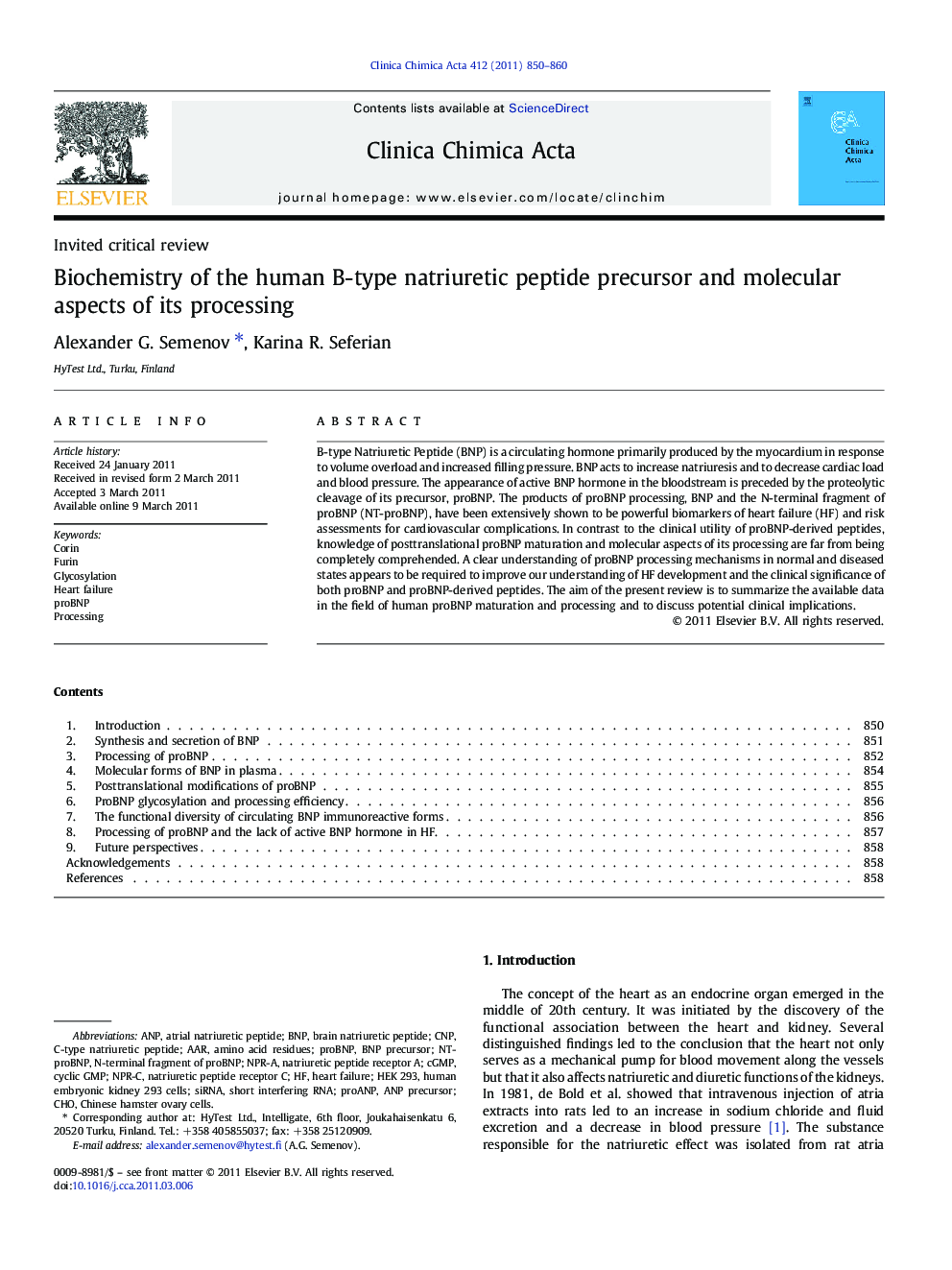| Article ID | Journal | Published Year | Pages | File Type |
|---|---|---|---|---|
| 8316557 | Clinica Chimica Acta | 2011 | 11 Pages |
Abstract
B-type Natriuretic Peptide (BNP) is a circulating hormone primarily produced by the myocardium in response to volume overload and increased filling pressure. BNP acts to increase natriuresis and to decrease cardiac load and blood pressure. The appearance of active BNP hormone in the bloodstream is preceded by the proteolytic cleavage of its precursor, proBNP. The products of proBNP processing, BNP and the N-terminal fragment of proBNP (NT-proBNP), have been extensively shown to be powerful biomarkers of heart failure (HF) and risk assessments for cardiovascular complications. In contrast to the clinical utility of proBNP-derived peptides, knowledge of posttranslational proBNP maturation and molecular aspects of its processing are far from being completely comprehended. A clear understanding of proBNP processing mechanisms in normal and diseased states appears to be required to improve our understanding of HF development and the clinical significance of both proBNP and proBNP-derived peptides. The aim of the present review is to summarize the available data in the field of human proBNP maturation and processing and to discuss potential clinical implications.
Keywords
HEK 293ANPproANPproBNPNT-proBNPcGMPAARNPR-CCNPBNPNatriuretic peptide receptor CNPR-Acyclic GMPshort interfering RNAsiRNAamino acid residuesChoProcessinghuman embryonic kidney 293 cellsChinese hamster ovary cellsFurinheart failureC-type natriuretic peptidebrain natriuretic peptideatrial natriuretic peptideCorinGlycosylationNatriuretic Peptide Receptor A
Related Topics
Life Sciences
Biochemistry, Genetics and Molecular Biology
Biochemistry
Authors
Alexander G. Semenov, Karina R. Seferian,
